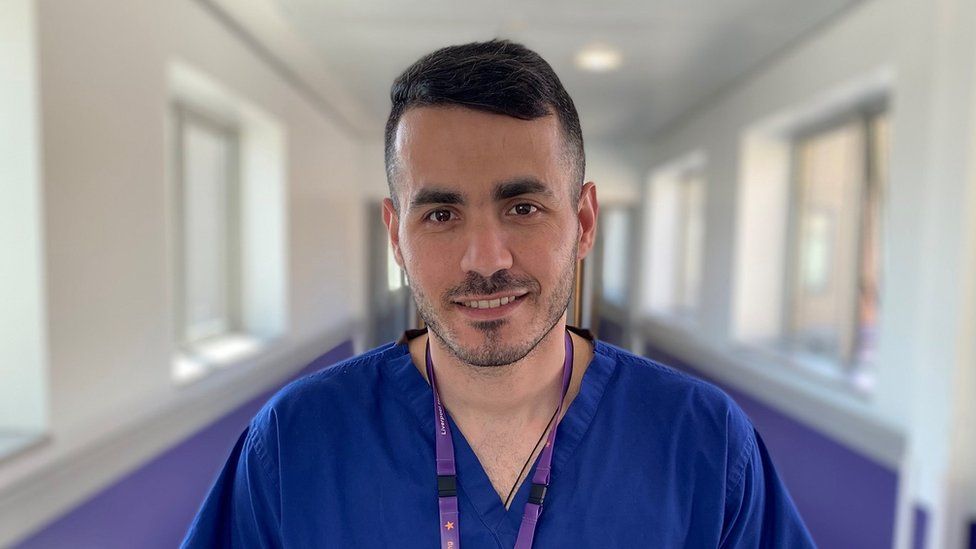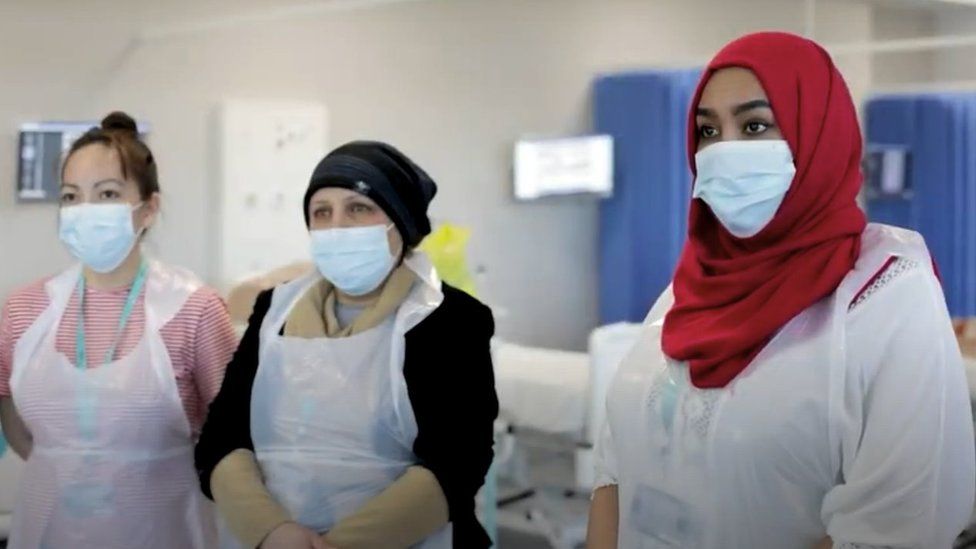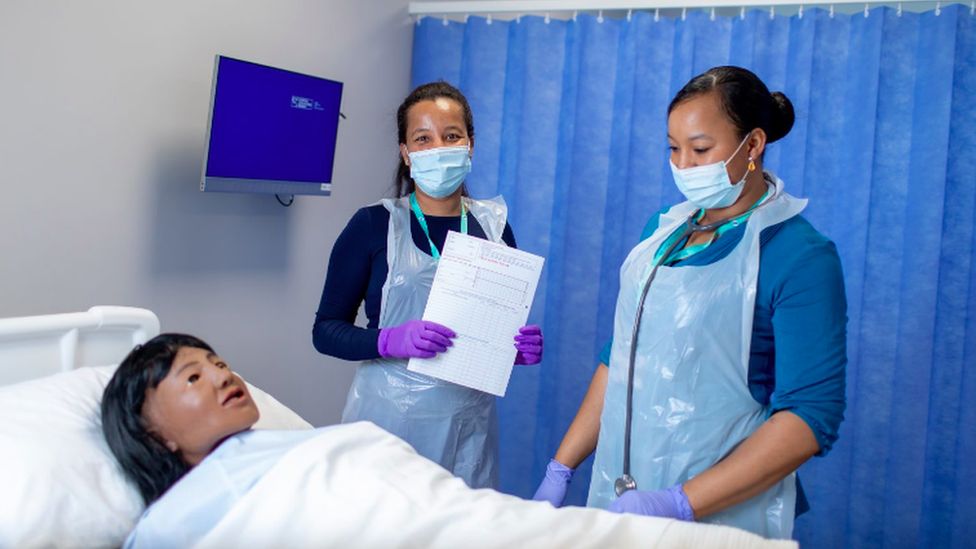
Refugee nurses are being fast-tracked into the NHS as part of a pioneering scheme in Liverpool. Those involved explain why the pandemic means it's vital the UK uses their medical experience.
Until last month, Walid Jarad had lived in just two t-shirts and two pairs of jeans for a whole year, washing them on rotation. He'd lived in three hotels and a shared house in London, moving every couple of months.
As an asylum seeker for his first year in the UK he wasn't allowed to work. Then came Covid-19 and Walid had to watch his medical qualifications go unused at a time they were so desperately needed.
'I couldn't use my experience'
A Palestinian national from Lebanon, Walid, 31, fled persecution from the government there. Before leaving he'd worked as a nurse in the intensive care unit for six years. So to be sitting, paralysed by his immigration status, was heartbreaking.
"I have so much experience in exactly the area that was needed," he says. "I've worked with so many isolated patients in intensive care respiratory units. My experience is completely relevant and I just couldn't use it."
The NHS already needs to recruit tens of thousands of international nurses in the next few years. So getting people like Walid working again was an "absolute no-brainer", according to Steven Colfar, director of nursing for the North West at NHS England and NHS Improvement.
"We listened to the personal stories of the individual refugee nurses," said Mr Colfar. "As healthcare professionals they find it extremely difficult to restart their career.
"You land here, you have no support, often no money, no idea how to get registered and you're just trying to survive. It's so difficult to get into the NHS without some sort of structure to help you."
So alongside a charity called Refuaid, Mr Colfar developed a course at Liverpool John Moores University designed to speed up the process of getting qualified refugee nurses back into hospitals again.
It lasts four weeks and involves practical exercises in an NHS hospital simulation environment, lots of work on how to communicate with patients and help with the English language.
Nurses have their qualifications and previous employment checked and they're helped to register with the UK's Nursing and Midwifery Council (NMC), if they've not already done it.
The first pilot course ran in February and Walid was one of 14 refugees - four men and 10 women, from Ethiopia, Sudan, Iran, Philippines, Gambia, Honduras and Myanmar - who were on it. They were all referred by Refuaid. The second course started in April.

Mona Hamid, from Sudan, was also on the pilot - she qualified as a nurse in 2017 but hasn't yet been able to work in the UK.
"When you come here not knowing anyone it's so difficult to find your way. When I found out about this programme from Refuaid I cried," she said.
"Really, I did, I cried. I felt homeless before. And on this course they make you feel important and really supported. They fill in any gaps in your knowledge."
The course costs £2,150 per candidate and if they get a job after they can be provided with £1,000 in relocation support while they wait for their first pay packet. It's funded by NHS England and Improvement.
Realising potential
Most asylum seekers are not allowed to work in the UK while their application is considered - meaning many are unable to practice, despite being medically qualified in their own countries.
"People are going from a position of total helplessness to a position that they could lead a real new life," Mr Colfar said of the course. "If we did not do anything they would be assigned to a life that would require social security support or a low paid job.
"This is about making them realise the potential they already had. They will be able to be independent so the return on this little investment is huge."
But Kate Higgins, director of operations at charity Refuaid, says time is of the essence, as the longer healthcare professionals are out of work the harder it is to re-qualify.
"We've developed a support structure and set of resources that provides a template for how to integrate displaced talent into the NHS in the hopes of repeating it across the UK."

At the end of the four weeks there is no pass or fail - course leaders assess what level each person is at and help arrange job interviews.
Walid had an interview immediately after completing the course. He got the job and on 6 April he walked into Liverpool Heart and Chest Hospital for his first day as a healthcare assistant. In about six months, his registration with the NMC will be complete and he'll become a nurse.
The job pays £19,000 a year and it means Walid has been able to support himself independently for the first time since landing in the UK. And crucially he's been able to do the job he loves.
"We had a patient that just wanted to be able to move around the ward but couldn't do it alone," he said. "All he needed was his hand held to walk and he thanked me so much when I did that for him."
"In this new job even giving a patient a glass of water feels totally amazing after not being able to do it for so long."
Covid: Refugee nurses are being fast-tracked into the NHS - BBC News
Read More
No comments:
Post a Comment